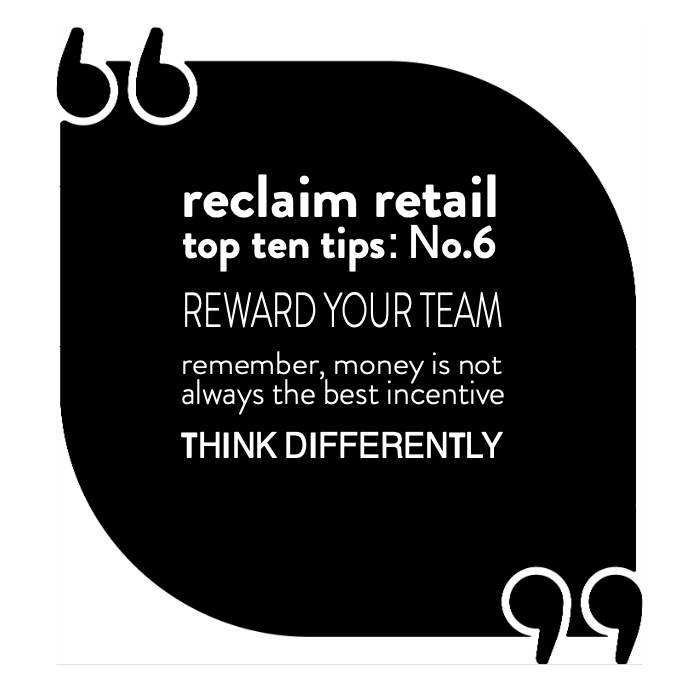28th February 2022

Here’s the thing, depending on the ages of your team members, incentives, rewards that you offer have to appeal to them, and each different demographic has things that are attractive to them, and the bottom line is, it’s not always money.
In fact, in most instances, money is a turn off because hairdressers (in general) look at the amount of revenue they earn from selling products and see it as not much for a lot of effort. What they don’t see is all the ‘on costs’ that salon owners are faced with before they start dividing the profit from any retail sales.
The effort, of course is actually minimal, it should be a standard part of their day-to-day job role, but the overall apathy when it comes to recommending product creates stress for hairdressers who don’t intuitively talk retail.
And yet, there are hairdressers out there who genuinely understand the significance of home care regimes for clients, and in most cases, incentives aren’t the reason for them selling products, it’s the additional care factor (at home) that makes talking about shampoo, conditioner etc a natural part of the client experience.
But there is a definite need for rewards, after all, we reward clients (hopefully) for their loyalty, so there should be something for the team to receive as well.
Seasonal incentives, or promotional activity to boost sales of a specific product are important and should be part of the salon activities, as should ‘ad hoc’ promotions that everyone in the salon team can aim for.
One of the biggest downfalls of promotional incentives is that the ‘top retailer’ always wins, so when setting a promotion that gives the team opportunities to win something, make it achievable for everyone. An incentive that offers multiple rewards on levels of achievement is much more likely to generate interest from everyone rather than the usual winner.
And your incentives for targeted sales on a weekly basis need to fit the bill for everyone as well. There is no ‘one size fits all’ incentive that works. Each member needs to have their own goals and targets, and their incentives should mirror their lifestyle and likes.
Baby Boomers (1944 – 64) Money is the determining factor for people in this age group as they are most likely to have families to look after, their children, and in many cases, their parents. Rewarding boomers with job titles is also a good way to encourage them to engage with incentives… think ‘retail manager’ ‘retail liaison’ ‘product controller’ along those lines, something that gives added kudos to their job role.
Gen X (1965 – 79) The X gang will always buy into the ‘ad hoc’ incentives as they like to act on impulse, and they like to keep records of what they achieve on a daily basis. When setting weekly targets for X’ers it’s worthwhile thinking about adding in special days when they get double points for any sales. Rewards should include money, meals, and tickets to concerts etc.
Millennials (1980 – 94) Personal experience days are great incentives for Millennials as they like to experience as much from life as they can, think hot air balloon rides, that kind of exhilarating adventure that really gets this group excited.
Gen z (1995 onwards) The younger members of your team, and the most inexperienced, incentives should be special training days they can attend, training that excites them and has some glamour attached to it, not a product knowledge day provided by your supplier. Think something that you know will be really interesting for them. Plus, this group are very much into helping good causes and charities, so think about that as well.
And then of course ‘duvet days’ Saturdays off and specials treats are all important. And whilst I believe money is not the most important aspect of incentives (except for boomers) it is still a relevant addition to your incentive portfolio.
Think outside the box and think about each of your teams’ individual needs, then create retail incentives that really do reward each and every member of your team.